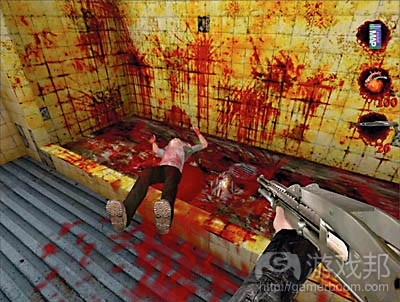盘点2013年震惊游戏行业的5大事件
作者:Mike Rose
近年来关于手机游戏崛起的讨论特别多,但今年的游戏行业大新闻却是家用游戏主机唱主角,可能会让人觉得惊讶。
但是,让真正引起轰动的并不是Xbox One和PlayStation 4的发行——而是,它从生产到发行这个过程中经历的决定和来自潜在新对手的挑战宣言。
那么,是什么时刻描绘了今年的游戏行业景象呢?我们挑选出影响最大的5个事件。
Valve加入“客厅争夺战”
我们去年就已经听说传闻中的“SteamBox”家用PC,Steam平台的新模式“Big Picture”的发布不仅暗示了Valve正在抢占玩家的客厅,更是宣告Nintendo、Sony和Microsoft遇上强大的新对手。
但直到今年,Valve花了一整周的时间做各种通告,这才真正开始执行它的“抢滩登陆战”计划。首先,它公布了为Steam平台量身打造的、基于Linux操作系统的SteamOS。接着它又揭开Steam Machines的神秘面纱—–Valve正在制作它自己的PC家用游戏机,并且邀请了许多其他硬件制造商参与实验。
最后,Valve发布了一款游戏手柄Steam Controller,它不仅可以用于玩传统的手柄型游戏,还可以玩需要鼠标和键盘的游戏。Valve的这一连串大动作,确实震惊了整个游戏业。就在这一周的时间里,Valve已经加入“客厅争夺战”,并为2014年制定好战略计划。
Biden谴责电子游戏暴力
2012年底发生的Newtown枪击事件造成重大伤亡,使公众再次把目光转向电子游戏业。美国步枪协会指出暴力电子游戏应该为这类枪击事件负责——或至少,应该承担比枪支易获取更大的责任。数周之后,美国副总统Joe Biden呼吁电子游戏行业领袖,希望召集行业代表们集会,质问他们一个问题:游戏行业的领袖要如何减少这种大规模枪击事件的发生?
对此,网上已经展开各种论战,一边主张游戏行业应该对话Biden,澄清为什么电子游戏业不应该被承担那么大的罪名;另一边却指出,即使与Biden会面,也暗示着游戏行业事实上就是罪魁祸首。
Gamasutra网站主编Kris Graft撰文解释了为什么与Biden会面会误捅马蜂窝。此文又引出许多其他文章和讨论,包括多媒体评测网站IGN的回应(“致Gamasutra网站的主编Kris Graft的公开信:你大错特错了”)和The Atlantic上的一篇文章(“电子游戏为什么输掉了枪支管制论战”)。
行业领袖确实与Biden会面了。副总统在会上指出,游戏行业确实必须整改游戏的暴力画面——尽管他承认他认为电子游戏中的暴力没有主流媒体和美国步枪协会所宣称的那么大的影响。
Xbox的逆转
当Microsoft于年初宣布即将发行的Xbox One游戏机需要持续的网络连接,否则无法做任何事,甚至连玩硬盘中的单机游戏也不行。对于大部分人而言,这似乎是为了停止二手游戏交易而产生的不必要麻烦。对于另一些人,比如生活在网络连接性差的地区的人,或不能时时连上网络的人(比如军人),这个消息无异于劝他们放弃这款游戏机。
Microsoft似乎不打算缓和它的“时时在线”态度,但在来自消费者和竞争者的巨大压力下,它取消了Xbox One的“时时在线”要求,且允许二手游戏出售。
这是游戏主机史上的一次大逆转,改变了它与Sony及Nintendo竞争次世代主机市场的局势。之后,仍然是在重重压力之下,Microsoft又放话欢迎游戏开发者通过“ID@Xbox自主发行计划”开发Xbox One游戏。
这些大政策逆转引人注意不只是因为其本身的意义,还因为消费者和开发者没有那么明确地提醒Microsoft(大多通过社交媒体),这家公司正在朝着错误的方向前进。
LucasArts的殒落
2012年,Disney做了一件令电影业大吃一惊的事,那就是以40亿美元的价格收购《星球大战》的制作公司Lucasfilm。这对游戏业也意义重大,因为这笔交易包括在游戏领域具有特殊地位的游戏发行工作室LucasArts。
虽然有人希望这笔收购案能够让这个游戏工作室复兴,但事态却朝着相反的方向发展——今年4月,Disney宣布停止LucasArts的所有内部开发活动,取消所有正在制作的项目,解雇了相当一部分员工,事实上把这个工作室当作已有内容的授权改编办公室。
Disney给出的关闭理由是,该工作室的当前形式面临着财政风险——当然,这不能平息整个游戏行业的悲恸。关闭LucasArts不只是电子游戏业的一大损失,更代表了一个梦想的死亡。对于众多开发者而言,正是LucasArts最先带领他们进走游戏开发的圣殿,是他们对LucasArts的旧冒险游戏津津乐道至今的理由之一。
XNA已死
游戏行业今年的损失除了LucasArts,还有NXA。2013年初,Microsoft最终叫停它的XNA开发工具箱,表示虽然这个工具可经继续使用,但官方将不再接受任何更新。这个决定显然已经被拖延了一阵子,但仍然对千千万万学习和依靠这个工具开发者造成沉重打击。
开发者们达到的一般共识是,XNA是一个非常有前途的工具,还有进一步传播的潜力。然而Microsoft从来没有在它身上花足够的时间和精力——也许是因为Xbox Live Indie Games平台的缺陷,它虽然使用XNA但从来没有真正用好它。幸运的是,那些被这个噩耗惊得不知所措的开发者们还可以依靠MonoGame——XNA 4 API的开源执行工具。
XNA的死亡也保全了Unity作为独立开发者的首选平台的地位。Unity首席执行官David Helgason甚至承认,当XNA发布时,他非常担忧公司的未来——但现在Microsoft对XNA的无爱显然令Unity摆脱了潜在的竞争。(本文为游戏邦/gamerboom.com编译,拒绝任何不保留版权的转载,如需转载请联系:游戏邦)
5 events that shook the game industry in 2013
By Mike Rose
After so much talk about the rise of the mobile game industry in recent years, it’s perhaps surprising that much of the big news this year revolved around playing games in the living room.
But it wasn’t the releases of the Xbox One and the PlayStation 4 that provided the real explosive drama — rather, it was the build-up to release, decisions made along the way, and announcements from potential new rivals.
Which moments truly shaped the video game landscape this year, then? We’ve whittled it down to five of the most notable pieces of news from 2013.
Valve’s vision for the living room materializes
We’d already heard rumors about the fabled ‘SteamBox’ living room PC last year, and the launch of Steam Big Picture mode more than hinted that Valve was getting ready to stake its claim in your living room, potentially giving Nintendo, Sony and Microsoft a new formidable competitor to deal with.
But it was this year that Valve really set forward its living room plans, dedicating an entire week to a variety of announcements. First it announced SteamOS, a Linux-based operating system built specifically around the Steam platform. Next came the Steam Machines — Valve was making its own PC-based game console, and had invited a bunch of other hardware manufacturers to have a crack at it too.
Finally the Steam Controller was unveiled, a gamepad that can be used to play traditional gamepad-based games, as well as games that require a mouse and keyboard. With each of these punches, Valve had the entire game industry hammering the F5 button. In the space of a week, Valve had made a play for the living room, and set its plans in motion for 2014.
Biden wants to talk about violence in video games
Following the devastating Newtown shooting at the end of 2012, many eyes turned to the video game industry, as the National Rifle Association decided that violent video games were to blame for these sorts of shooting — or at least, more to blame than the availability of the weapons themselves. Weeks later, as 2013 had just begun to churn itself out, U.S. Vice President Joe Biden put out a call to video game industry leaders, looking to secure a meeting with industry representatives, and asking the question: What will the leaders of the game industry do to help reduce the occurrence of mass shootings?
Cue a large-scale back-and-forth spread wide and far across the internet, in which one side of the argument claimed that we, the industry, should meet with Biden to spell out the reasons why we aren’t to blame — while the other made the point that even turning up to a meeting with Biden would suggest that we are, in fact, a guilty party.
The article from Gamasutra editor-in-chief Kris Graft discussing the reasons why meeting with Biden would be a mistake kicked over a bit of a hornet’s nest, and spawned numerous other articles and conversations elsewhere, including a response at IGN and an article on The Atlantic. [Former IGN editor-in-chief Casey Lynch also ran a worthwhile vox pop of journalists and developers about the issue.]
Industry leaders did attend the meeting with Biden, in which the VP gave the impression that the games industry really needs to improve its image when it comes to violence in video games — although he admitted that he doesn’t feel that violence in video games has such an effect as the mainstream media and NRA would have us believe.
The Xbox 180
When Microsoft announced earlier this year that the upcoming Xbox One console would require a constant internet connection to essentially do anything, including simply playing single-player games from a disc, the internet went into meltdown. For most, it appeared to be an unnecessary inconvenience that was aimed at stopping used game sales. For some, such as people living in areas with poor internet connections, or people in professions where an internet connection isn’t always available (like soldiers), this announcement killed any idea of them picking up the console.
It looked like Microsoft wasn’t going to relent on this always-on stance, but under vast market pressure from consumers and competition, Microsoft removed the Xbox One always-on requirement, and allowed for used games to be sold.
It was one of the biggest reversals in the history of game consoles, and changed the dynamic of the next-gen console race with Sony and Nintendo. Later still, under ongoing pressure, Microsoft provided another u-turn, and said it would allow developers to self-publish on Xbox One in the form of the ID@Xbox self-publishing program.
Not only were these major policy reversals notable in and of themselves, but also because of the way consumers and developers not-so-subtly told Microsoft — largely via social media — that the company was moving in the wrong direction, spurring the changes.
LucasArts is no more
2012 saw Disney surprise the movie industry, with the $4 billion purchase of Star Wars company Lucasfilm. This was significant for the video game industry too, since the deal included video game publishing studio LucasArts, a company that has a special place in many hearts.
But while some hoped that this would lead to a revitalization of the video game company, nothing could be further from the truth. Disney announced in April this year that it was shutting down all internal development at LucasArts, canceling all titles in production, letting go of the majority of its staff, and effectively using the studio as a licensing house for its existing properties.
Disney’s reasoning for the shutdown was that the studio presented financial risk in its current form — of course, this didn’t quell the outpouring of grief from the games industry as a whole. The closing down of LucasArts wasn’t just a loss for the video game industry — it was the death of a dream. For so many developers, LucasArts was why they got into video game development in the first place, and is one of the reasons why we still talk about LucasArts’ old adventure games to this day.
XNA is dead
LucasArts wasn’t the only meaningful video game industry shutdown this year. Early in 2013, Microsoft finally called time on its XNA development toolset, stating that while the tools will remain available, they will not receive any more updates. It was a decision that had clearly been on the cards for a while, but that didn’t stop it being a notable blow for the thousands of developers who relied on the tools, and had built up the necessary skills to go with the platform.
The general consensus among developers was that XNA was a very promising set of APIs with the potential to spread far and wide, yet Microsoft never really took the time to give it enough focus and attention — perhaps due to the flawed Xbox Live Indie Games platform, which utilized XNA but never really managed to take off. Fortunately, those developers who were left in the lurch by the news had MonoGame, the open source implementation of the XNA Framework, to fall back on.
The fall of XNA also well and truly secured Unity’s place as the indie developer’s platform of choice. Unity CEO David Helgason even admitted that when XNA launched, he feared for the future of his company — Microsoft’s failure to show any real love for XNA helped Unity break away from the potential competition.(source:gamasutra)
上一篇:游戏设计师必须尽量多玩游戏吗?










































 闽公网安备35020302001549号
闽公网安备35020302001549号